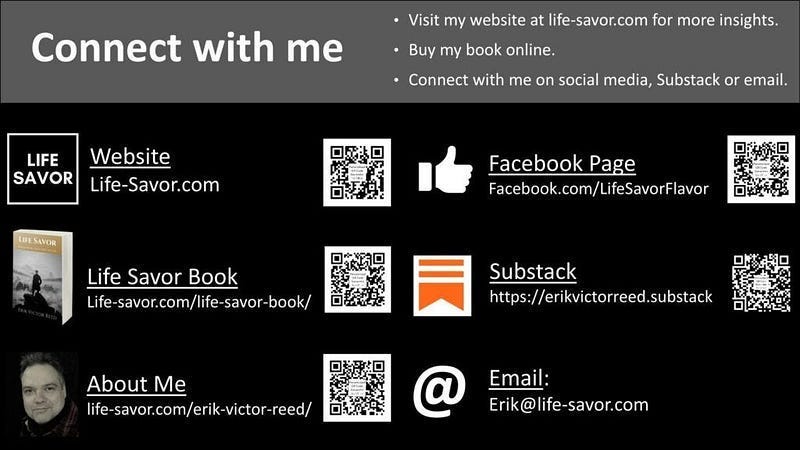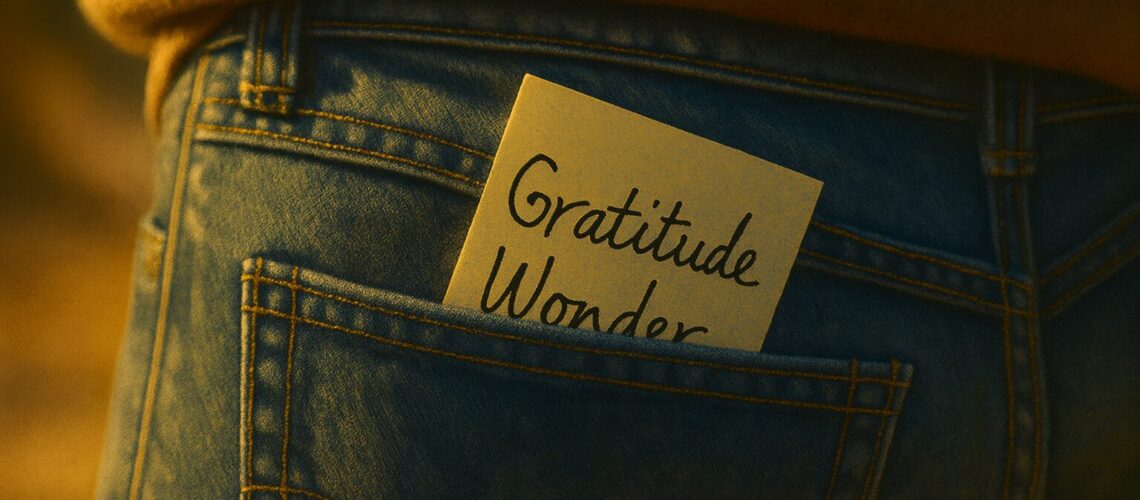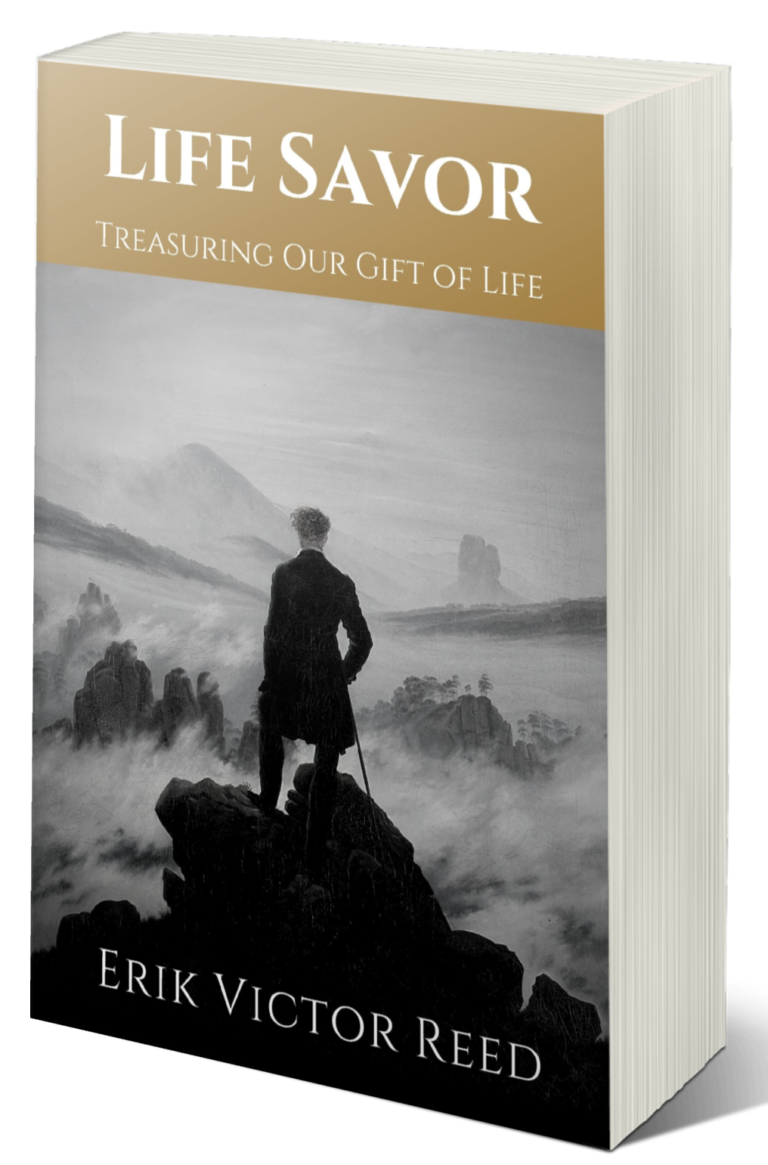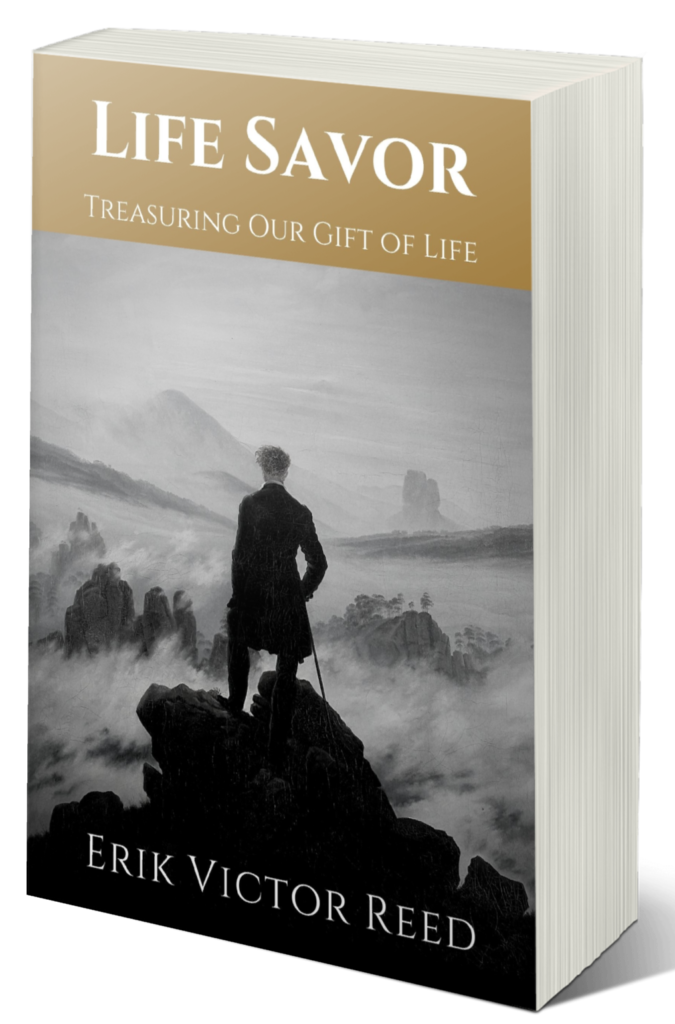Why it helps to know hope is waiting for you
Life is not designed to be easy. It is turbulent, uneven, unpredictable. Some days feel like victory laps, others like collapse. To demand that we “always savor life” or “always feel grateful” is to set ourselves up for disillusionment.
The truth is, no one can carry a sunlit perspective 24/7. And that’s okay. Because perspective doesn’t lose its value just because it isn’t always active. Sometimes, it’s enough to know that a helpful way of seeing the world is tucked in your back pocket, ready when you need it.
An Oasis in Your Back Pocket
Think of gratitude, mortality awareness, or wonder as tools — not obligations. You don’t need to keep them running at all times, like apps draining your battery. Instead, they can rest quietly until called upon.
Knowing you can return to them later is itself comforting. It’s like having an oasis mapped in your desert journey. Even if you’re not there yet, knowing the water exists steadies your steps.
Sometimes the mere awareness that gratitude can be felt is enough to prevent despair from consuming us. Other times, the active return — the conscious turn to thankfulness, perspective, or awe — becomes healing. Both matter: the knowledge and the practice.
Why Forcing Gratitude Can Backfire
This does not mean gratitude is the right tool for every moment. Some wounds cut too deep to patch with silver linings. If a child has just died, no sane person should force themselves to feel grateful. An irreplaceable value has been lost, and pretending otherwise would be disingenuous.
In such moments, mourning is not to be escaped but endured. To stand in the flame of grief until it burns itself out is not weakness — it is the only authentic path forward. Marcel Proust captured it: “We are healed of a suffering only by experiencing it to the full.”
To deny pain is to deny love. As John Green reminds us: “It hurts because it mattered.”
Emotional Honesty: The First Step Back
One of the traps of modern “happiness culture” is the demand to plaster over pain with positivity. People suggest we “buck up,” “stay strong,” or “just get over it,” as though cheerfulness were a moral obligation. But this kind of airbrushing corrodes our relationship with ourselves.
To be fully alive is to cry as well as laugh. Emotions are not enemies; they are signals. And they don’t need to be felt forever. Raphael Cushnir put it well: “Emotions don’t need to be felt forever, or obsessively, but just long enough to have their say.”
When we suppress pain, it festers. When we allow it, it begins to loosen. Sometimes the bravest act of savoring life is to admit, “Right now, I hate life.” Because honesty clears the ground for healing.
Not Ready, But Steady
Picture someone in despair — a person sitting at their kitchen table after a breakup, a layoff, or a devastating loss. In that moment, they don’t feel grateful. They don’t feel awe. They don’t feel perspective. They just feel raw pain.
But somewhere deep down, they remember: they’ve touched gratitude before. They’ve felt wonder before. They know that, in time, they can feel it again. That knowledge doesn’t erase their grief. But it makes the grief survivable. The back pocket perspective whispers: This isn’t the whole story. There’s a way of seeing that will return to you, when you’re ready.
The Human Burden and the Human Gift
Our human burden is that we must choose to live. But our human gift is that we get to appreciate life — and that appreciation provides incentive for choosing to live. We don’t need to feel grateful every second for gratitude to work. It’s enough to know the option exists, waiting to be claimed.
Even despair has dignity when it is honest. What makes despair deadly is the lie that it is final. The back pocket perspective is the reminder that despair, too, passes — and that perspective will come back into reach.
What We Miss Without It
When we numb ourselves permanently — when we demand unbroken positivity or try to armor against pain — we flatten life into something sterile. The movie Heathers captured the absurdity: “If you were happy every day of your life, you wouldn’t be a human being, you’d be a game show host.”
Life’s beauty lies in its full range: thunderstorm and sunset, heartache and laughter. To always demand cheerfulness is to miss the aesthetic experience itself — the symphony of highs and lows, the chiaroscuro of joy and sorrow that makes the canvas vivid, deep, full of meaning.
Closing Thought
You don’t need to savor life every second for savoring to still be a valuable principle. Sometimes it’s enough to know the perspective is there — like a note in your pocket, ready to steady your heart when you reach for it.
Carry gratitude, mortality awareness, and wonder with you. Even if you don’t use them today, they are waiting for you tomorrow.
Because perspective doesn’t expire. It waits, patient and steady, like an oasis you know is out there — a place you can return to when your soul is thirsty to live again.
For more like this, visit the broader project at life-savor.com, or explore the Life Savor book itself.
To learn more about Life Savor’s philosophy,
read Life Savor: Treasuring Our Gift of Life by Erik Victor Reed.








